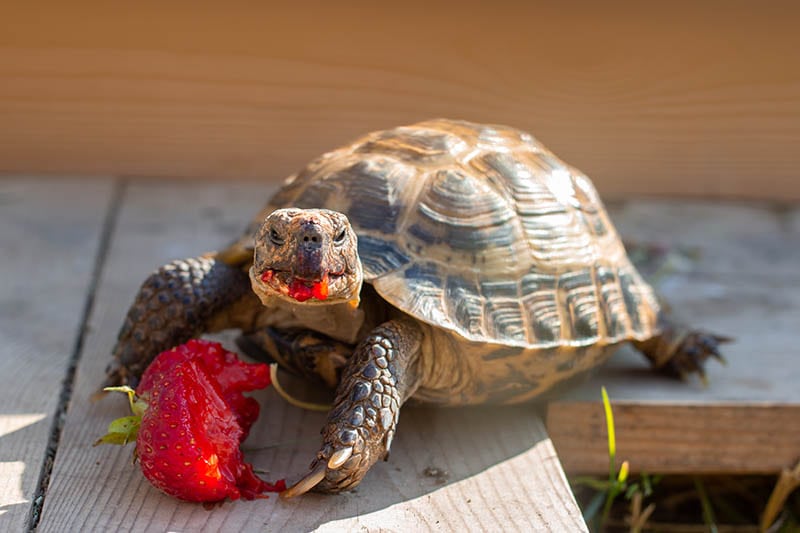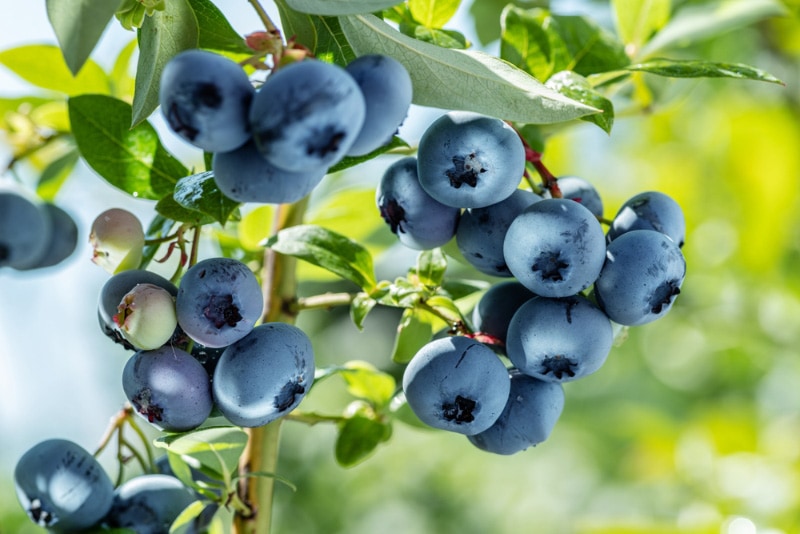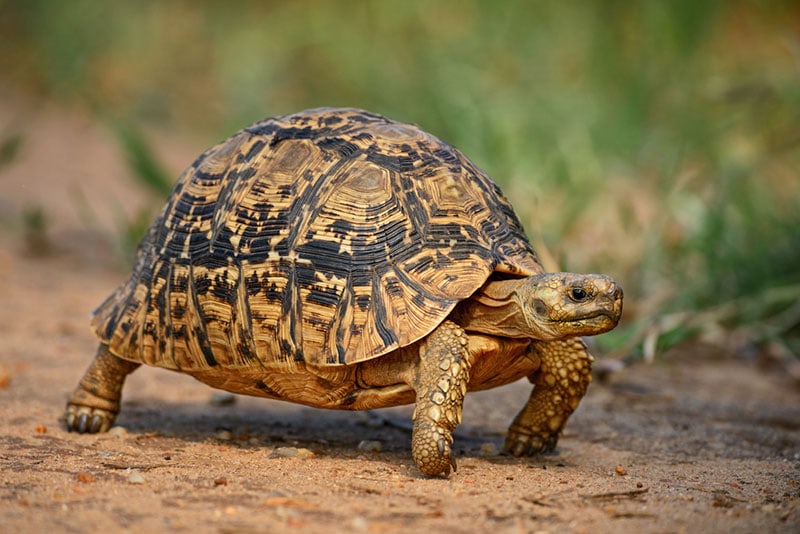Can Tortoises Eat Blueberries? Vet-Reviewed Nutrition Facts & FAQ

Updated on

Tortoises, such as the Sulcata Tortoise and the Russian Tortoise, thrive in captivity when their needs are met, including a proper diet with hay, leafy greens, and some vegetables. While tortoises can eat fruits like blueberries, they’re not ideal. Since blueberries are healthy, it might be confusing why tortoises should not have them. Read on to learn why!
Are Blueberries Part of a Tortoise’s Natural Diet?
Captive reptiles like tortoises should have a diet as close as possible to what they’d eat in the wild.
Generally, tortoises are herbivorous animals that feed primarily on grasses, weeds, and leafy greens in the wild. On occasion, some species may eat fruits like wild berries and insects or worms.
Many different species of tortoise are kept as pets, all with different tolerances for fruits like blueberries. Generally, the species that will eat fruit live in tropical rainforest environments, such as the Yellow-Footed Tortoise, the Red-Footed Tortoise, and the Elongated Tortoise.
Many other species commonly kept as pets are native to grasslands and deserts, which means they never consume any fruits in the wild and feed entirely on plant matter. This includes the African Sulcata, Spur Thighed, Russian Tortoise, Indian Star Tortoise, and Leopard Tortoise.
If you have a desert or grassland species, you can offer blueberries as a treat, but it’s possible that it may not like them.
If you have a tropical tortoise species, they can eat blueberries and some other fruits on occasion, but this should only be a rare treat in an otherwise balanced, species-appropriate diet.

Are Blueberries Good for Tortoises?
Blueberries aren’t toxic to tortoises in general. In fact, blueberries are considered a healthy, nutrient-dense fruit for humans and packed with vitamins and antioxidants, but it’s unclear if tortoises could reap the same benefits from eating them. If they consume too much of any fruit, tortoises can develop gastrointestinal issues, so blueberries should only be given in tiny amounts.
What Other Fruits Can Tortoises Eat?
For tropical species that eat fruit naturally, there are several fruits you can add to the diet as a rare treat. These include:
- Apples
- Bananas
- Cherries
- Figs
- Grapes
- Kiwi
- Papaya
- Peaches
- Pears
- Raspberries
- Strawberries
- Watermelon
If you choose to feed any of these fruits, it’s important that they are raw, washed to remove pesticides, and free of pits or seeds that can present a choking hazard or may damage their beaks. Worse yet, if your tortoise manages to break the pit and consume some of it, there’s a risk of poisoning from naturally occurring cyanide glycoside.
Keep fruits to a minimum to ensure your tortoise gets the nutrition it needs from appropriate foods like leafy greens and hay. A diet too high in fruit gives your tortoise too much sugar, which ferments faster than it does in the natural diet and compromises the natural gut flora, leading to liver abscesses that can be fatal.

Can Tortoises Eat Blueberry Plant Leaves?
If you buy blueberries on the vine or grow them yourself, you may be tempted to give your tortoise the blueberry leaves.
Some experts recommend avoiding blueberry plant leaves for your tortoise because of the tannins in them. Tannins are natural astringent compounds that give plants a vibrant color and bitter taste.
In high amounts, tannins can inhibit the absorption of iron and other minerals, leading to anemia and inhibiting herbivore digestion by binding to plant proteins. It’s best to avoid feeding blueberry leaves or other plants that have a lot of tannins. There are plenty of alternatives to blueberry leaves, such as dandelion leaves, kale, collared greens and turnip greens, to name a few.

Conclusion
Tortoises do best when they eat a diet close to their natural diet of hay and leafy greens. Grazing tortoises, such as the grassland and desert species, shouldn’t eat much fruit at all, while tropical tortoises can have some blueberries as an occasional treat. It’s important not to go overboard, however, as it can disrupt your tortoise’s digestive balance and affect its health. If you have any questions or concerns about your tortoise’s diet, it’s best to consult with your vet.
See Also:
- Can Tortoises Eat Oranges? Vet-Approved Nutrition Facts & FAQ
- Can Tortoises Eat Apples? Vet-Reviewed Nutrition Facts & FAQ
Featured Image Credit: pilipphoto, Shutterstock











